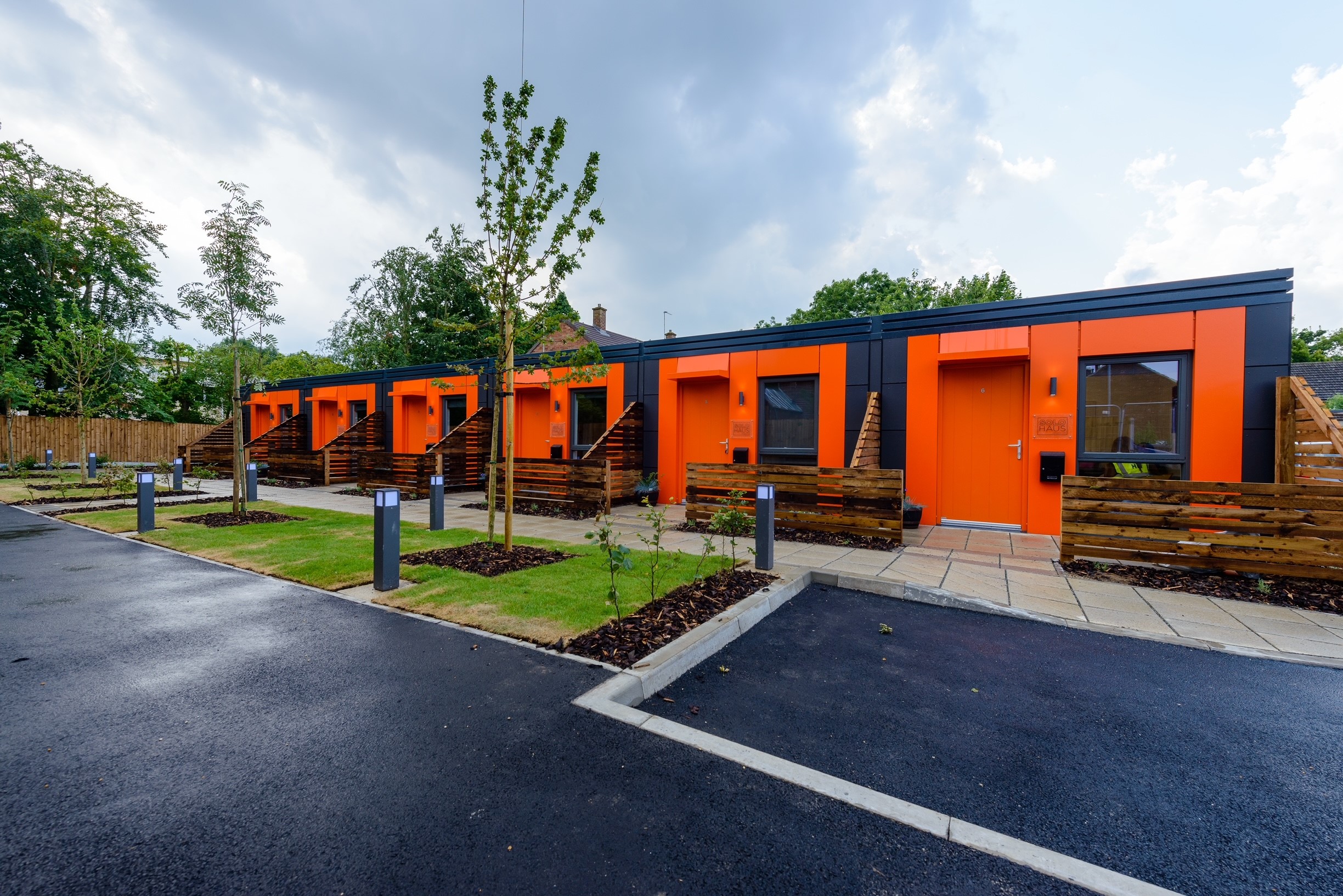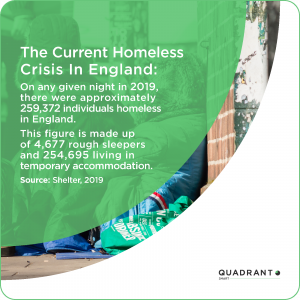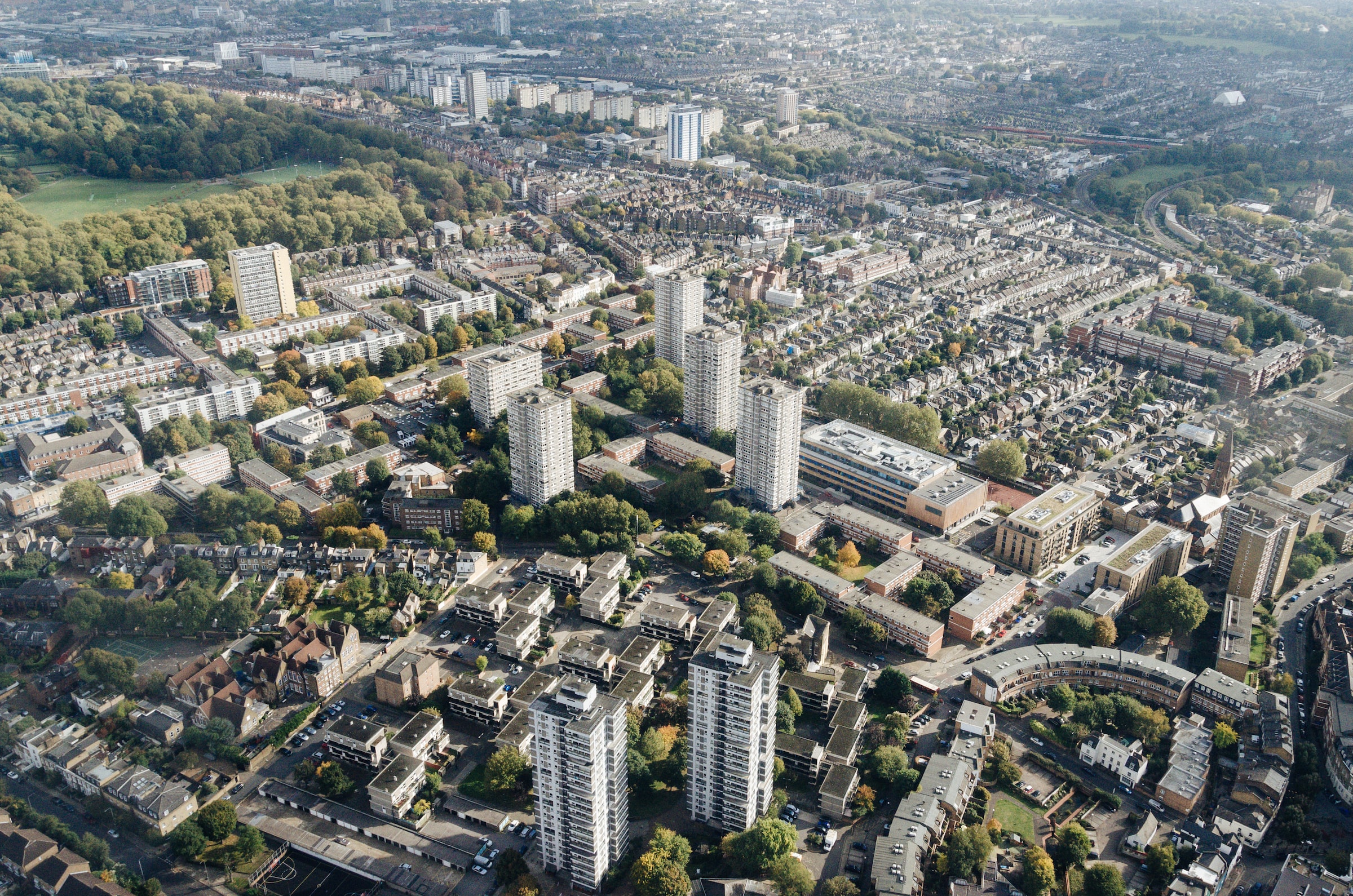How Are Modular Homes Helping to Tackle Homelessness?

The Hill Group has handed over eight Solohaus modular homes for the homeless to Dacorum Borough Council, intended as follow-on accommodation for local people in Hertfordshire. Housing Industry Leaders looks at how these modular homes will help tackle homelessness.
With over 259,000 individuals experiencing homelessness in England, something needs to change, and now more than ever, a sustainable solution is required to help people without a home.
Dacorum Borough Council is the first council in Hertfordshire to use these purpose-built modular homes as follow-on accommodation for people who have previously experienced homelessness in the local area.
Located at Hampton Close in Hemel Hempstead, one of the homes has been gifted by The Hill Group, with the other seven funded by the council and a government grant. The council has also received support from BPM Project Management Ltd and Arcus Consulting on the project.
The Homes Are Highly Energy Efficient To Keep Costs Low
Portfolio Holder for Place, Cllr Alan Anderson, said: “Having a safe, comfortable, independent space is vital to helping those who have experienced homelessness to rebuild their lives and make the transition into more stable accommodation.”
These SoloHaus units provide us with a complete solution to supporting people who find themselves in this position and will make a real difference in our efforts to tackle homelessness in the borough.
SoloHaus was developed as the housing solution to The Hill Group’s Foundation 200, a £15 million pledge to design, manufacture and donate 200 modular homes to local authorities and charities working in homelessness by 2050.
The homes are specially designed, fully furnished and equipped for a single person to move straight into. Each modular home is said to provide a sleek independent space and a safe, comfortable environment.
Built to last 60 years, the homes are highly energy efficient to keep cost lows and are designed to Future Homes Standards, which exceeds building regulations for energy efficiency and sound insulation.

Manufactured in the West Midlands by The Hill Group’s manufacturing partner Volumetric Modular, SoloHaus units are made prior to being delivered and installed on-site. So far, around 150 SoloHaus homes have been handed over to local authorities in the fight against homelessness.
Chief Executive at The Hill Group, Andy Hill said: “We are pleased to be working with Dacorum Borough Council to supply the first purpose-built modular homes in Hemel Hempstead.”
We designed SoloHaus to aid vulnerable individuals with nowhere to call home and I am confident that this scheme will have an incredibly positive impact on many Dacorum residents, helping them to turn their lives around.
Residents’ Aspirations Will Be Supported
The homes will be managed through a partnership arrangement with DENS, a local homeless charity that aims to be the first port of call for people in Dacorum who are facing homelessness, poverty, and social exclusion.
DENS will be providing support to the residents to help them realise their aspirations for housing, skills development, employment, and education.
Speaking about the modular homes, the CEO at DENS, Wendy Lewington, said: “These smart, modular homes will enable us to support even more people facing homelessness in Dacorum.”
DENS staff will be providing tailored advice and training to the residents so they can develop the skills, confidence and resilience to help rebuild their lives and take the next step into independent living.
People Becoming Homeless In The UK Is Rising
Figures from the end of July 2022 released by the UK Government show that 74,230 households in England became homeless or were at imminent risk of becoming homeless between January and March 2022, including 25,610 families with children. This represents an 11 per cent rise in three months and a 5 per cent rise in the same period last year.
Charity Shelter is calling for the UK Government to intervene to prevent a steep rise in homelessness as renters struggle with the highest private rents on record alongside rocketing household bills.
In addition to the above, the government’s homelessness data from July 2022 also revealed that despite being in full-time work 10,560 households were found to be homeless or threatened with homelessness.
It was also discovered that 25 per cent of households were found to be homeless or at risk of becoming homeless because of the loss of a private tenancy (18,210 households). This has increased by 94 per cent in a year and is the second leading trigger of homelessness in England.
Therefore, this reflects that a change is needed right now and that a sustainable solution which can help people rebuild people’s lives is the way forward.

